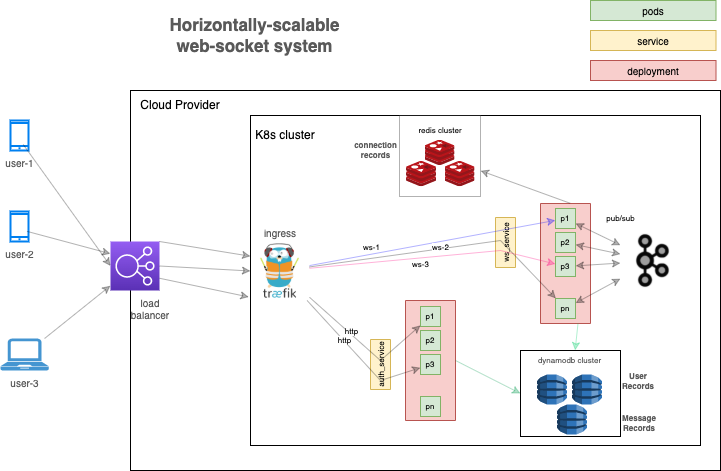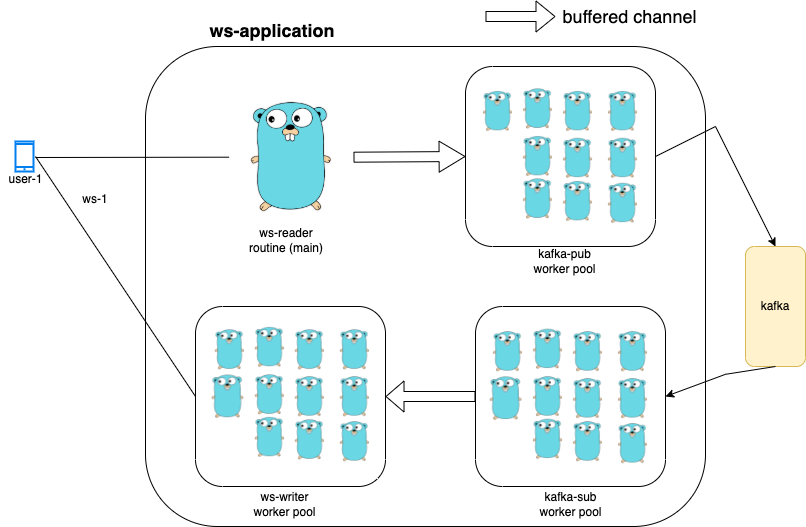- sockRecv routine (main routine)
- sockWriter routine
- kafka pub routine
- kafka sub routine
- broadcasting to all servers
- cons:
- to many redundant events published to all servers
- pros:
- dont have to keep and maintain connection details
- multidevice connection response
- have to keep local record of all username-(random-int):connections (pod wise)
- topic
- only one topic
- will replay all the events on creation of new pod
- pod-id topic
- maintain username-(random-int): ws.Conn
- use sync.Map
- only one topic
topic will be the pod-id
- all the consumer routines will pe part of a same consumer group subscribing to one topic
- number of partions = number of consumers(consumer-routines) in a consumer group of the topic
- each pod will listen to its own "pod-id" topic
- recieve sub payload:
{
"message" : string,
"reciever_id" : string,
"sender_id" : string
}
- ack() the message
- pass to the ws-writer
- query redis for recv_id to get pod_id
- redis model
key: user_id (string) // will work for one-user-one-conn
val: pod-id
- publish to the pod from the value of redis
- (publish) payload
{
"message" : string,
"reciever_id" : string,
"sender_id" : username (string)
}
- set database status to 'SENT'*
- payload (recieved)
{
"message" : string,
"reciever_id" : string,
"sender_id" : username (string)
}
- queries local map for reciever_id to get its ws.Conn
- writes to conn
- change message status to 'DELIVERED'*
- save to database and mark status to 'NONE'
- recieving payload:
{
"payload": string,
"sender_id": string,
"reciever_id": stirng
}
-
-
- emit event on topic: 'SET_STATUS_TO_SENT' /'SET_STATUS_TO_DELIVERED' from websock to auth svc
- carry writes/updates on user-table from auth svc
- carry writes/updates on message-table from websock-svc
-

